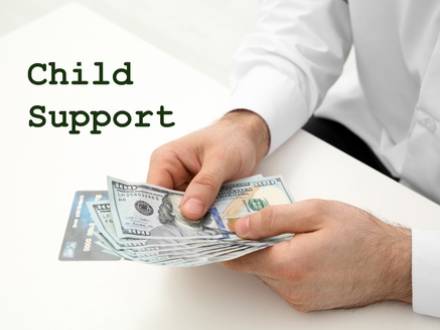 630-393-3111
630-393-3111
4200 Cantera Drive, Suite 200 | Warrenville, IL 60555
Recent Blog Posts
How is a Retirement Account Split During an Illinois Divorce?
 While the division of retirement accounts during an Illinois divorce can be complex, it can also be a crucial part of the property division process. Some spouses in the middle of a contentious divorce may simply walk away from their share of the retirement account just to have the matter over and done with. Other spouses may not believe the retirement account is worth enough to go through the headaches of splitting it. However, many others cannot finance their later years without their retirement funds.
While the division of retirement accounts during an Illinois divorce can be complex, it can also be a crucial part of the property division process. Some spouses in the middle of a contentious divorce may simply walk away from their share of the retirement account just to have the matter over and done with. Other spouses may not believe the retirement account is worth enough to go through the headaches of splitting it. However, many others cannot finance their later years without their retirement funds.
According to recent data from the Investment Company Institute, retirement assets make up 34 percent of household financial assets in the country. At Calabrese Associates, P.C., we know how valuable your retirement account may be, and how important it is to protect it from a messy division. Our DuPage County, IL divorce lawyers have over 40 years of combined experience, so we can effectively guide you through complex financial matters.
What If My Spouse Refuses to Sign Divorce Papers?
 Filing for divorce often comes with strong emotions from both sides. These feelings are natural and expected. However, if your spouse refuses to sign divorce papers, you may feel as if you’ve reached a dead end. In cases like these, seeking out a lawyer is highly advisable.
Filing for divorce often comes with strong emotions from both sides. These feelings are natural and expected. However, if your spouse refuses to sign divorce papers, you may feel as if you’ve reached a dead end. In cases like these, seeking out a lawyer is highly advisable.
At Calabrese Associates, P.C., our DuPage County, IL family law attorney can help you determine your next move. We have experience handling divorces with uncooperative spouses, and we can take action to keep the legal proceedings moving. Attorney Michael Calabrese has over 30 years of legal experience, giving him a rich perspective on contested divorces.
How Do You Serve Divorce Papers in Illinois?
Once you file your divorce petition in Illinois, you must officially notify your spouse. This is called "service of process." It is not enough to simply hand your spouse a copy or text them a photo. The court needs proof that your spouse received the papers in a proper way.
8 Red Flags of a High-Conflict Divorce
 Conflict happens in most divorces. Couples who agree on many issues can still argue about money, parenting, or emotions tied to the end of a marriage. This kind of disagreement is normal. However, some divorces involve conflict that goes far beyond what most people expect, and spotting the warning signs early can help limit damage.
Conflict happens in most divorces. Couples who agree on many issues can still argue about money, parenting, or emotions tied to the end of a marriage. This kind of disagreement is normal. However, some divorces involve conflict that goes far beyond what most people expect, and spotting the warning signs early can help limit damage.
As of 2025, divorces in Illinois are governed by the Illinois Marriage and Dissolution of Marriage Act. This law encourages cooperation when possible. It also gives courts tools to step in when one spouse refuses to follow the rules. Consider some possible signs of a high-conflict divorce, and contact our Naperville, IL divorce lawyer to learn how we can help.
What Is a High-Conflict Divorce in Illinois?
A high-conflict divorce is not defined by one argument or one bad interaction. Instead, it usually involves repeated behavior that causes ongoing problems throughout the case. One spouse may delay the process, ignore court rules, or refuse to compromise.
What Happens if My Ex Stops Paying Child Support in Illinois?
 Court-ordered child support is not optional in Illinois. It is a legal obligation designed to make sure both parents help meet a child’s needs. If your ex has fallen behind on payments, there are ways to enforce the child support order and collect what is owed. Our knowledgeable DuPage County, IL child support lawyer can guide you through your options and help you navigate the process.
Court-ordered child support is not optional in Illinois. It is a legal obligation designed to make sure both parents help meet a child’s needs. If your ex has fallen behind on payments, there are ways to enforce the child support order and collect what is owed. Our knowledgeable DuPage County, IL child support lawyer can guide you through your options and help you navigate the process.
What Should I Do First if My Ex Stops Paying Child Support?
If your ex has stopped paying child support, start by reviewing your court order to confirm the payment amount and schedule. Check your records through the Illinois State Disbursement Unit (SDU), which tracks all official child support payments in the state. Keep written notes about missed payments and any messages from your ex about why they stopped paying.
How To Get Guardianship of My Grandchildren
 Grandparents often help care for their grandchildren by offering meals, support, and emotional guidance. When parents become unable or unwilling to care for their children, grandparents are often the first people willing to step in. A grandparent who wants to become a legal guardian must understand the steps involved and the laws that apply. If you have questions, a Naperville, IL guardianship lawyer can provide answers and get your case started.
Grandparents often help care for their grandchildren by offering meals, support, and emotional guidance. When parents become unable or unwilling to care for their children, grandparents are often the first people willing to step in. A grandparent who wants to become a legal guardian must understand the steps involved and the laws that apply. If you have questions, a Naperville, IL guardianship lawyer can provide answers and get your case started.
What Does Legal Guardianship Mean in Illinois?
Guardianship is a legal relationship created by a court. It gives a responsible adult the authority to make important decisions for someone. Under 755 ILCS 5/11-5 of the Illinois Probate Act, a court may appoint a guardian when it finds that doing so is necessary to promote the person’s welfare and protect their best interests.
How Appeals Work in Illinois Family Law Cases
 When people involved in a divorce or family law case head to court and go through a trial, it is important to understand that a court decision is not necessarily the final word on the matter. Illinois Supreme Court Rules allow people to appeal court decisions, meaning any judgment in a Circuit Court can be appealed to an Appellate Court, and a judge or panel of judges may review the case.
When people involved in a divorce or family law case head to court and go through a trial, it is important to understand that a court decision is not necessarily the final word on the matter. Illinois Supreme Court Rules allow people to appeal court decisions, meaning any judgment in a Circuit Court can be appealed to an Appellate Court, and a judge or panel of judges may review the case.
Appeals typically have to be filed with the Circuit Court Clerk within 30 days of a court decision. After 30 days pass, the decision becomes binding, and no appeals will be granted. If you are considering this step, consulting a DuPage County, IL family law appeals lawyer can help you understand your rights and the timeline involved.
What Does Filing an Appeal Mean in Illinois Family Law Cases?
An appeal is a formal request for the Illinois Appellate Court to review the trial court’s ruling. It is important to understand that the appeal does not redo the trial. No new witnesses are called, no new evidence is introduced, and the appellate court does not reconsider the facts from scratch.
Can You Really Write Your Own Child Custody Agreement?
 In Illinois, you can write your own child custody agreement, called a parenting plan. However, you have to follow state law if you want a judge to approve it. Writing your own plan means that you have more control over the process and your family’s future. It can also help you avoid long, stressful court battles. If you do not understand what the law requires, it is easy to make mistakes that can delay or block approval. Our Naperville, IL child custody lawyer can help you create an agreement that serves your child’s best interests and meets all the legal standards.
In Illinois, you can write your own child custody agreement, called a parenting plan. However, you have to follow state law if you want a judge to approve it. Writing your own plan means that you have more control over the process and your family’s future. It can also help you avoid long, stressful court battles. If you do not understand what the law requires, it is easy to make mistakes that can delay or block approval. Our Naperville, IL child custody lawyer can help you create an agreement that serves your child’s best interests and meets all the legal standards.
What Does Illinois Law Say About Parenting Plans?
A parenting plan explains how parents will share time with their children and how they will make important decisions about things like education, health care, and religion. Every parenting plan must include two main parts. The parental responsibilities section, often called legal custody, refers to the decision-making aspect of parenting. The other section covers visitation, otherwise known as parenting time.
What is an Illinois Status Hearing and What Should I Expect?
 At some point during your Illinois divorce, your attorney may tell you there is an upcoming status hearing, but you may never have heard that phrase before. Your divorce can involve several steps, including status hearings, motions, interrogatories, and even a deposition. If you and your spouse cannot agree on important issues, the case may move to a pre-trial and possibly a trial.
At some point during your Illinois divorce, your attorney may tell you there is an upcoming status hearing, but you may never have heard that phrase before. Your divorce can involve several steps, including status hearings, motions, interrogatories, and even a deposition. If you and your spouse cannot agree on important issues, the case may move to a pre-trial and possibly a trial.
A status hearing allows both parties to inform the court about any progress made on previously identified issues and to determine next steps. While it may be unfamiliar to you, your Naperville, IL divorce lawyer can guide you through your status hearings and help you work toward the best outcome possible.
What Issues Are Discussed During a Status Hearing?
Status hearings can address a variety of issues, such as:
-
Development of a parenting plan
-
Allocation of parental responsibilities
Can My Kids and I Keep My Married Name After Divorce?
 In Illinois, you can keep your married name after divorce, and your children’s last names will stay the same unless a court orders otherwise. Some parents choose to return to a maiden name, while others keep their married name so they share a last name with their children. If you have questions about this or any other aspect of ending your marriage, a Naperville, IL divorce lawyer can offer advice and service rooted in experience.
In Illinois, you can keep your married name after divorce, and your children’s last names will stay the same unless a court orders otherwise. Some parents choose to return to a maiden name, while others keep their married name so they share a last name with their children. If you have questions about this or any other aspect of ending your marriage, a Naperville, IL divorce lawyer can offer advice and service rooted in experience.
Why Do Some Parents Choose To Keep Their Married Name After Divorce?
The most common reason parents keep a married name after divorce is the desire to have the same last name as their children. Sharing a last name can reduce confusion in schools, medical settings, and community activities. It also helps children feel a sense of stability during a time of transition.
Some professionals may keep their married name for career reasons. If you have built a reputation or business under your married name, changing it could create unnecessary challenges. Others simply feel that their married name has become part of their identity, and giving it up is not the right choice for them.
Emergency Guardianship of an Adult
 Adult guardianship is a court order that lets one adult make decisions about another person’s health, money, or property. This step is necessary when an individual who is 18 or older can no longer effectively manage their own affairs.
Adult guardianship is a court order that lets one adult make decisions about another person’s health, money, or property. This step is necessary when an individual who is 18 or older can no longer effectively manage their own affairs.
Guardianship proceedings can take months. To provide quick protection in urgent situations, courts sometimes grant temporary emergency guardianship. A knowledgeable DuPage County, IL adult guardianship attorney can help you navigate the process and protect your loved one’s interests.
Why File for an Emergency Guardianship?
Some adults with disabilities or impairments cannot protect themselves from harm or financial abuse. Emergency guardianship offers immediate protection when there is a real risk facing an individual or their property before a permanent guardian is appointed.


 4200 Cantera Drive, Suite 200, Warrenville, IL 60555
4200 Cantera Drive, Suite 200, Warrenville, IL 60555 630-393-3111
630-393-3111





